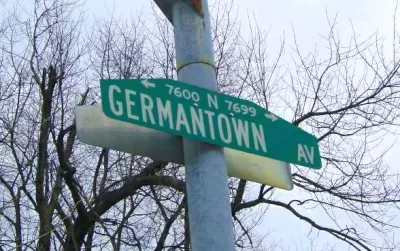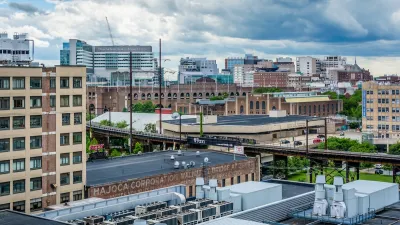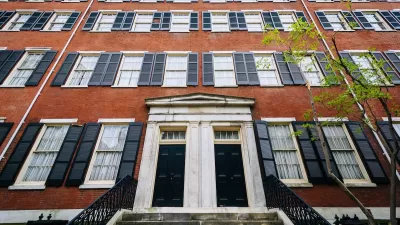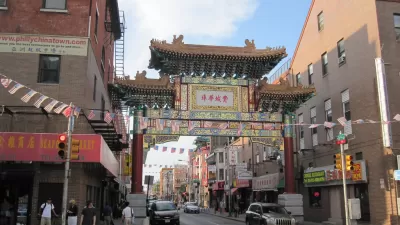Germantown has acquired many more wealthy residents without displacing many of its long-term residents or losing its diversity.

Philadelphia is the fourth most segregated city in the United States according to a study from Brown University, but Germantown is an exception. "Philadelphia overall is one of the country’s more diverse large cities: African-Americans make up 43 percent of the population; Caucasians account for 41 percent; and Asians and those who identify as other races make up about 6 percent each," Sandy Smith writes for Next City. Smith argues that Germantown in is a bit of a hidden treasure, unfamiliar to those outside of northwest Philadelphia, a neighborhood that's 80% African American with a wealth of homegrown resources and “third places,” whether barber shops or coffee houses.
Germantown is home to residents of a variety of different income levels and it has welcomed a mix of different people for centuries. "William Penn was a Quaker who left England to establish an American colony that would be tolerant to all religious beliefs. In 1683, Penn sold land in his new colony to Francis Daniel Pastorius so that the German religious dissident could establish a settlement where his fellow Pietists, as well as Mennonites and Quakers, could practice their beliefs freely," Smith reports.
Today, Smith argues, local developers and a slow pace of change has meant that, even as Germantown has become home to some wealthier residents, it has been able to maintain its character and not push out those who lived there already.
FULL STORY: How This Philadelphia Neighborhood Is Gentrifying without Displacement

Alabama: Trump Terminates Settlements for Black Communities Harmed By Raw Sewage
Trump deemed the landmark civil rights agreement “illegal DEI and environmental justice policy.”

Study: Maui’s Plan to Convert Vacation Rentals to Long-Term Housing Could Cause Nearly $1 Billion Economic Loss
The plan would reduce visitor accommodation by 25% resulting in 1,900 jobs lost.

Planetizen Federal Action Tracker
A weekly monitor of how Trump’s orders and actions are impacting planners and planning in America.

Wind Energy on the Rise Despite Federal Policy Reversal
The Trump administration is revoking federal support for renewable energy, but demand for new projects continues unabated.

Passengers Flock to Caltrain After Electrification
The new electric trains are running faster and more reliably, leading to strong ridership growth on the Bay Area rail system.

Texas Churches Rally Behind ‘Yes in God’s Back Yard’ Legislation
Religious leaders want the state to reduce zoning regulations to streamline leasing church-owned land to housing developers.
Urban Design for Planners 1: Software Tools
This six-course series explores essential urban design concepts using open source software and equips planners with the tools they need to participate fully in the urban design process.
Planning for Universal Design
Learn the tools for implementing Universal Design in planning regulations.
Caltrans
Smith Gee Studio
Institute for Housing and Urban Development Studies (IHS)
City of Grandview
Harvard GSD Executive Education
Toledo-Lucas County Plan Commissions
Salt Lake City
NYU Wagner Graduate School of Public Service





























